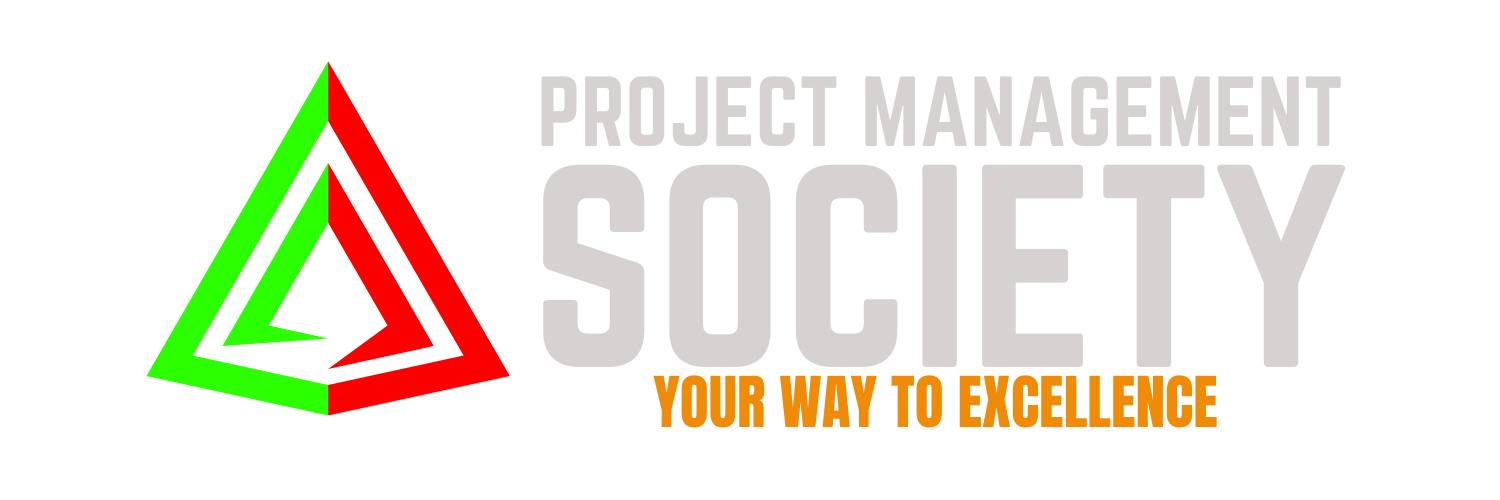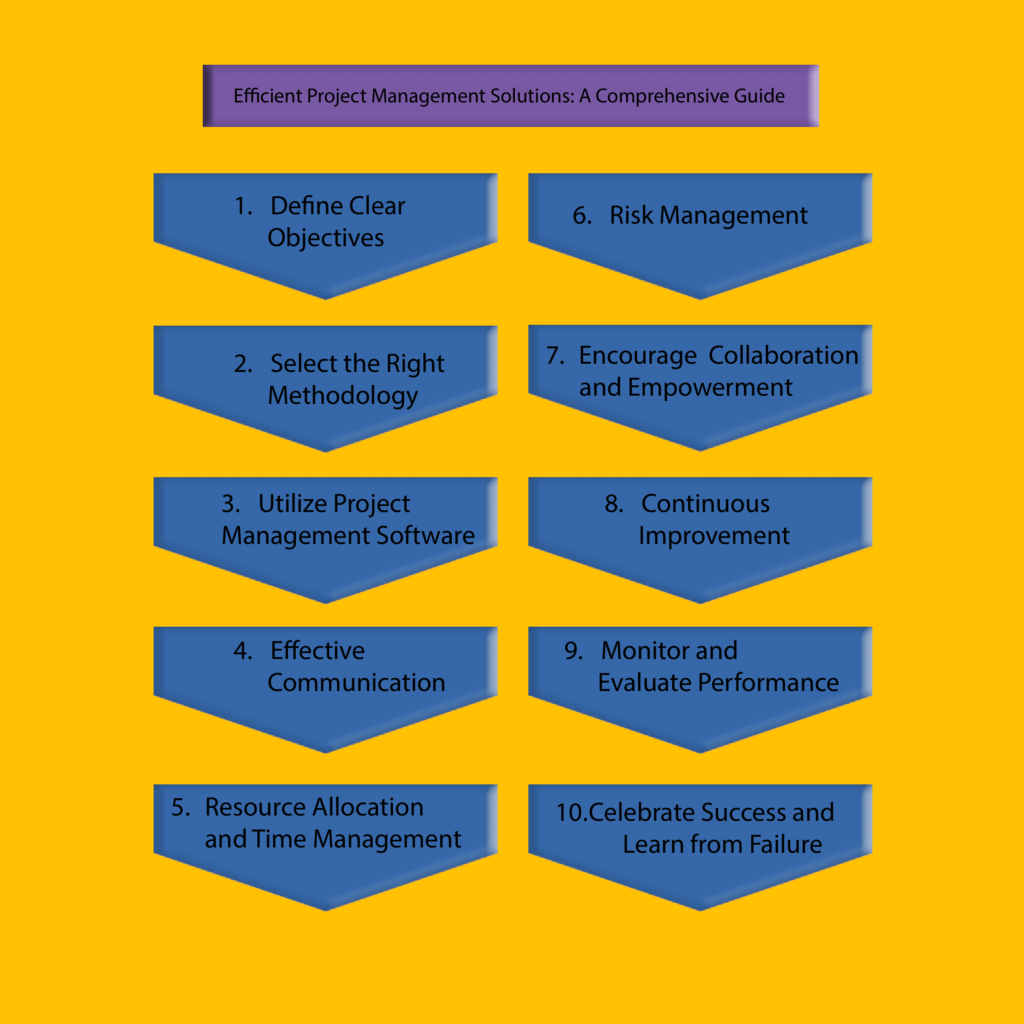 In today’s fast-paced business environment, efficient project management is crucial for the success of any organization. Whether you’re a small startup or a multinational corporation, effective project management can make the difference between meeting deadlines and exceeding expectations or falling short and facing costly delays. This comprehensive guide will explore various strategies, tools, and techniques to help you streamline your project management processes and achieve optimal results.
In today’s fast-paced business environment, efficient project management is crucial for the success of any organization. Whether you’re a small startup or a multinational corporation, effective project management can make the difference between meeting deadlines and exceeding expectations or falling short and facing costly delays. This comprehensive guide will explore various strategies, tools, and techniques to help you streamline your project management processes and achieve optimal results.
- Define Clear Objectives: The foundation of any successful project is a clear understanding of its objectives. Before diving into the execution phase, take the time to define specific, measurable, achievable, relevant, and time-bound (SMART) goals. This clarity will provide direction to your team and ensure everyone is aligned on what needs to be accomplished.
CLICK HERE TO DOWNLOAD 300+ PROJECT MANAGEMENT TEMPLATES & DOCUMENTS IN EXCEL
- Select the Right Methodology: There are various project management methodologies available, such as Agile, Waterfall, Scrum, and Kanban. Each has its own strengths and weaknesses, so it’s essential to choose the one that best fits your project’s requirements and team dynamics. Agile methodologies, for instance, are well-suited for dynamic environments where requirements may evolve, while Waterfall is ideal for projects with clearly defined stages and deliverables.
- Utilize Project Management Software: Investing in robust project management software can significantly enhance efficiency by centralizing communication, task tracking, and resource management. Tools like Asana, Trello, and Jira offer features such as Gantt charts, task boards, and collaboration functionalities, allowing teams to stay organized and focused throughout the project lifecycle.
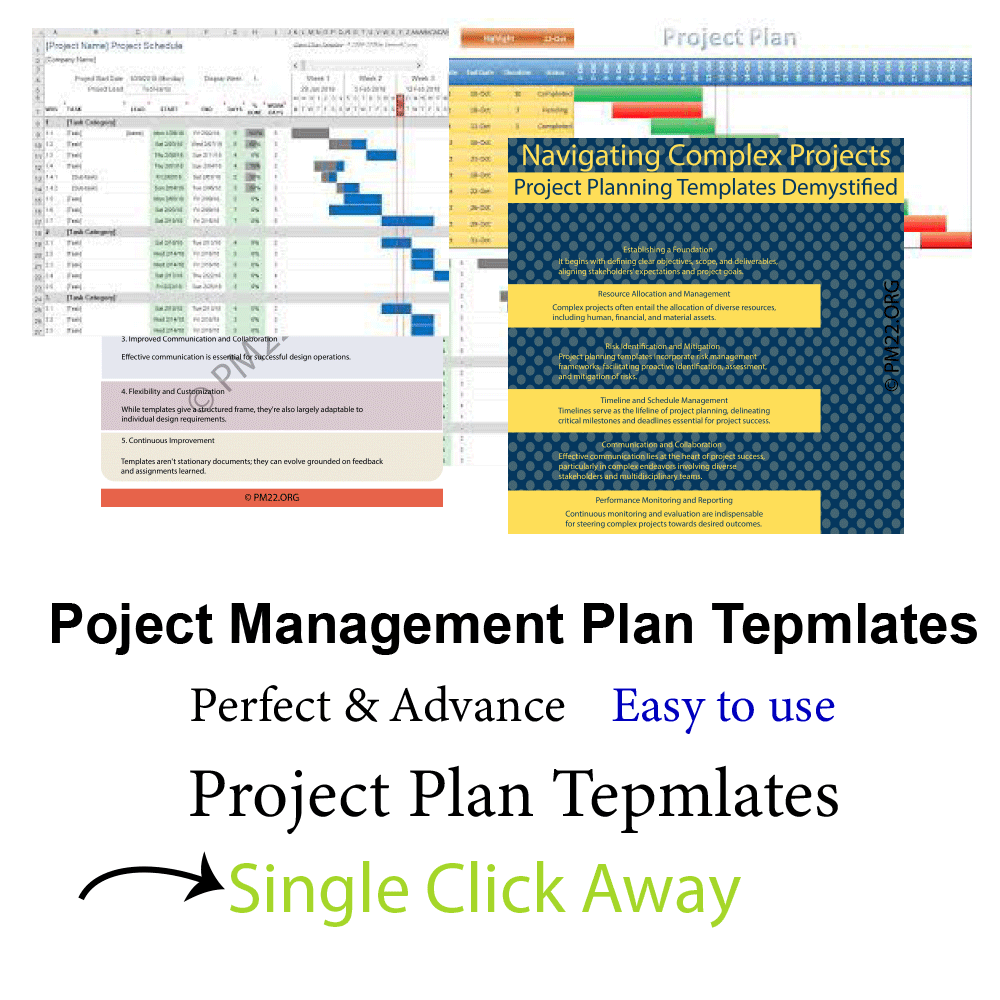
- Effective Communication: Communication is the cornerstone of successful project management. Establishing open channels of communication within the team and with stakeholders ensures that everyone is on the same page regarding project status, milestones, and potential roadblocks. Regular meetings, progress reports, and collaborative platforms facilitate transparent communication and foster a culture of accountability.
- Resource Allocation and Time Management: Efficiently allocating resources and managing timelines is essential for project success. Utilize resource management tools to track team availability, assign tasks based on skillsets, and prevent resource bottlenecks. Additionally, creating realistic timelines with built-in buffers for unforeseen delays helps mitigate risks and ensures that deadlines are met consistently.
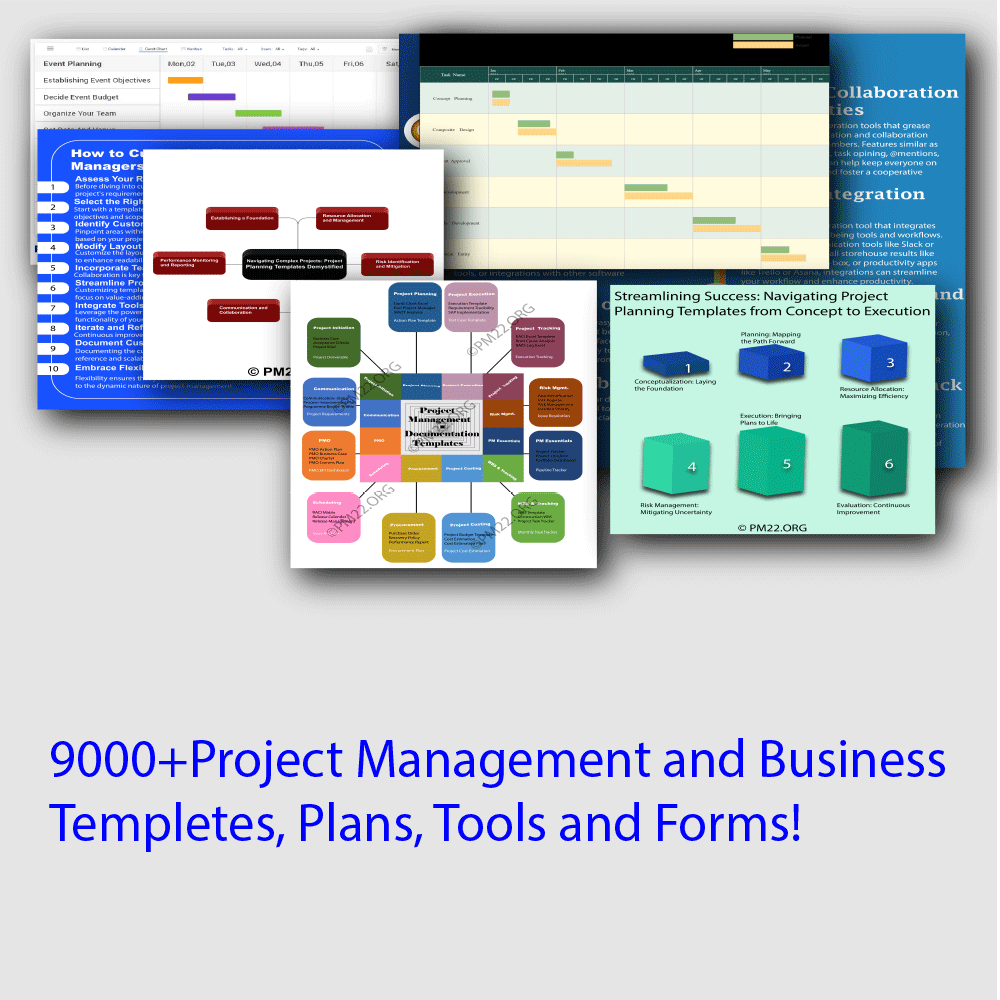
- Risk Management: Identify potential risks early in the project lifecycle and develop strategies to mitigate them effectively. Conducting risk assessments, establishing contingency plans, and regularly monitoring risk factors are essential components of proactive risk management. By addressing potential threats upfront, you can minimize their impact on project outcomes and maintain project momentum.
- Encourage Collaboration and Empowerment: Foster a collaborative and empowering work environment where team members feel valued and empowered to contribute their ideas and expertise. Encourage cross-functional collaboration, promote knowledge sharing, and recognize individual and team achievements. A motivated and engaged team is more likely to overcome challenges and deliver exceptional results.
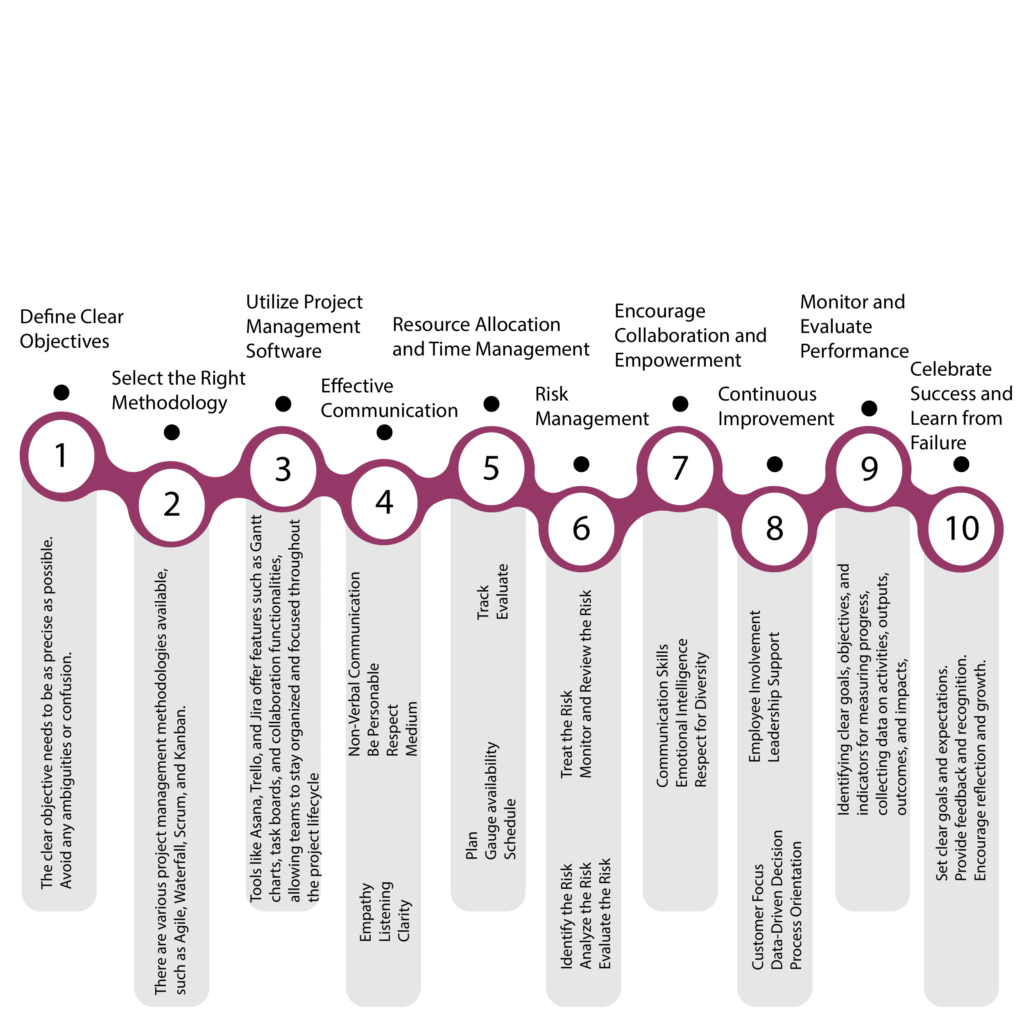
- Continuous Improvement: Project management is an iterative process, and there’s always room for improvement. Encourage a culture of continuous learning and improvement by soliciting feedback from team members and stakeholders at the end of each project phase. Identify areas for enhancement, implement lessons learned, and refine processes to optimize efficiency and effectiveness over time.
CLICK HERE TO DOWNLOAD 300+ PROJECT MANAGEMENT TEMPLATES & DOCUMENTS IN EXCEL
- Monitor and Evaluate Performance: Regularly monitor project performance against predefined metrics and key performance indicators (KPIs). This ongoing evaluation provides insights into project health, identifies potential issues early on, and enables informed decision-making. Adjust strategies and allocate resources as needed to ensure project objectives are met within scope, budget, and schedule constraints.
- Celebrate Success and Learn from Failure: Celebrate project milestones and successes to boost team morale and motivation. Similarly, view failures and setbacks as valuable learning opportunities rather than setbacks. Conduct post-mortem analyses to identify root causes, lessons learned, and areas for improvement. By embracing a culture of continuous learning and resilience, you can turn setbacks into steppingstones for future success.
In conclusion, efficient project management is essential for driving business growth, fostering innovation, and delivering value to stakeholders. By implementing the strategies and best practices outlined in this comprehensive guide, you can optimize your project management processes, overcome challenges, and achieve optimal outcomes consistently. Remember, successful project management is not just about completing tasks—it’s about empowering teams, fostering collaboration, and delivering results that exceed expectations.
